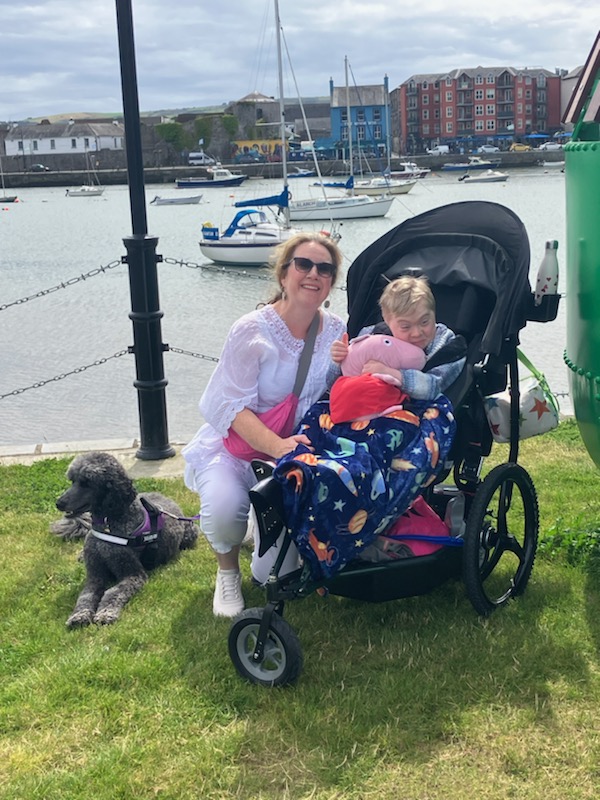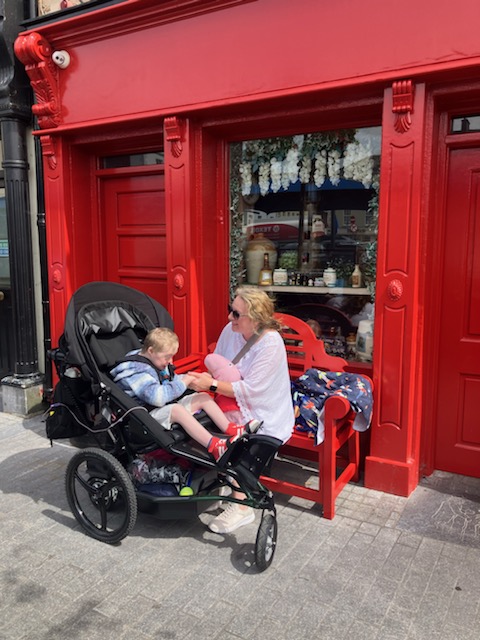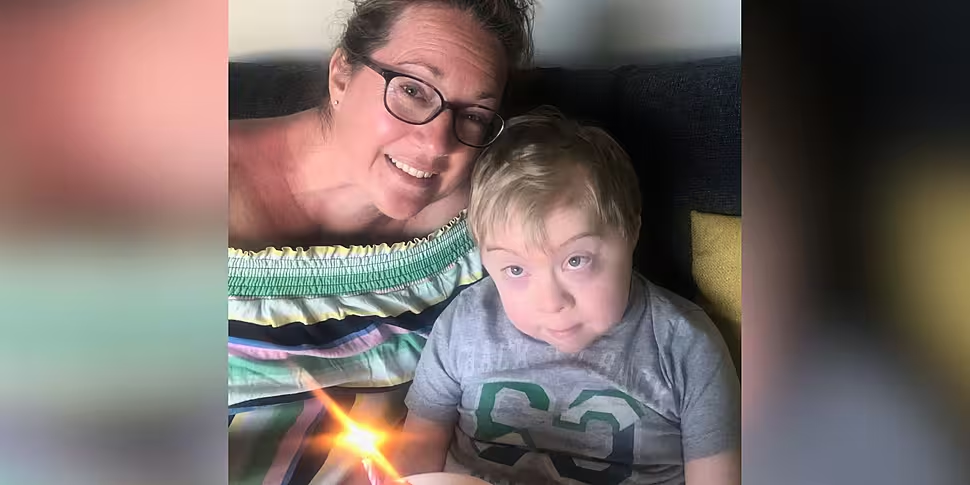The mother of a man with special needs has said it is 'ridiculous nonsense' to suggest her son is 'cured' when he turns 18.
Children with special needs often need round-the-clock care, some of which is provided by schools and respite care.
When they turn 18, however, a lot of that care disappears as they move into adult services.
Aisling McNiffe's son Jack is 19 and has down syndrome, a rare autoinflammatory disease and is a wheelchair user.
She told Lunchtime Live Jack has lost access to his respite care.
"What happens to an 18-year-old with an intellectual disability or autism is that they're expected to navigate adult services," she said.
"For example, my son lost his respite with LauraLynn, where he was for 10 years, on the date of his birthday.
"We have now established a new respite near us but in a year, he only got one one set of overnights in respite.
"I have very little home nursing so respite is vital. I'm a lone parent carer, as many carers are."
 Aisling McNiffe with her son Jack, who has special needs. Image: Supplied
Aisling McNiffe with her son Jack, who has special needs. Image: SuppliedMs McNiffe said things are getting harder as Jack gets older.
"There's this ridiculous nonsense about when they're 18 that they're cured," she said.
"In fact, the truth is that things get harder because... I'm 51 and I've had back surgery and that's what happens with carers - because we can't get to look after ourselves, we end up hurting ourselves.
"The fear is always [thinking] what if something really happens?"
Ms McNiffe said a nursing home is usually the only option in such a scenario.
"It has happened to me where I've hurt myself or I've been ill - I had COVID and Jack had to go for emergency care to LauraLynn, which he was still in at the time," she said.
"So twice he had to go for crisis care but in the meantime, if you had no respite, that would probably be in hospital or in a nursing home.
"When he was 18, because I had no respite for him, I was offered a nursing home by the HSE as an alternative to an appropriate placement for respite.
"Imagine sending an 18-year-old child to a nursing home for respite? It just doesn't work."
 Aisling McNiffe with her son Jack, who has special needs. Image: Supplied
Aisling McNiffe with her son Jack, who has special needs. Image: SuppliedMs McNiffe said many people can be left in 'crisis' if their parents die suddenly.
"I know a 80-year-olds who are caring for their adult children waiting for residential care places and they're not turning up," she said.
"Then what happens is, if the parents die, it's a crisis.
"Many of them are just ending up in nursing homes and it's terrifying for us".
'Legal rights to supports'
Independent Senator Tom Clonan provides care for his 22-year-old son Eoghan who suffers from a neuromuscular disease.
"I dress Eoghan every day, toilet him, feed him and he's 22 - this this is the reality of our life," he said.
"For him to live an independent, full life he needs 24-hour care supports.
"Ireland is the only country in the European Union where disabled citizens like my son don't have the legal right to these kind of supports - and as a consequence, many disabled citizens have to live at home with elderly parents."
Senator Clonan said they don't know what the future holds.
"I'm pushing 60 and we don't know what the future is for Eoghan when he graduates from college," he said.
"So it leads to a situation where we've got thousands and thousands of citizens all over Ireland who live with elderly parents."
'Charity model'
Senator Clonan said Ireland is "the worst country in the European Union to have a disability."
"We don't have that legislation to to give our children these rights," he said.
"We don't have a fundamental human rights approach to disability in Ireland. It's based on an outdated, anachronistic charity model.
"What it does to people like me is that, as parents and adults, you've got this constant fear and worry and anxiety about what's going to happen to your adult son or daughter when you die."
Senator Clonan added that a legal right to services would "transform the landscape and bring us into line with the rest of the European Union".
Listen back here:









